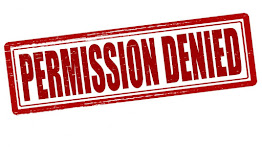Town of Highland Park v. McCullersDallas Court of Appeals, No. 05-19-01431-CV (June 29, 2021)
Chief Justice Burns (Dissent linked
here), and Justices Pedersen, III (Opinion linked
here) and Goldstein (Concurrence linked
here)
The Town of Highland Park cannot be sued by the survivors of an off-duty police officer killed in a flash flood while providing security at a private residence through an arrangement coordinated by the Town, according to a divided Dallas Court of Appeals panel.
SMU police officer Calvin Marcus McCullers accepted an assignment offered by the Highland Park Department of Public Safety to provide after-hours security, at a property owner’s expense, for a private residence then under construction. A little more than two hours after he arrived at the property in his personal car, a torrential downpour flooded the area where he was parked and swept him and his car over an embankment into Turtle Creek. His body was discovered several weeks later on the banks of the Trinity River more than three miles downstream.
Officer McCullers’s survivors sued Highland Park and others for negligence and other torts. Asserting governmental immunity from such claims, Highland Park filed a plea to the jurisdiction, which the trial court denied after the parties conducted limited discovery. On interlocutory appeal, the core issue was whether coordinating a program to provide security services to private residences by off-duty police officers is an exercise of “police protection” and thus a governmental function for which the Town is generally immune from suit, or a “proprietary” function to which immunity does not apply.
The distinction between governmental and proprietary functions, which applies only to municipalities, is codified in the Texas Tort Claims Act, chapter 101 of the Civil Practice and Remedies Code. The TTCA defines proprietary functions as those “that a municipality may, in its discretion, perform in the interests of the inhabitants of the municipality”—but not including the list of 36 functions expressly identified as governmental functions. The first item on this list is “police and fire protection and control.” Justices Pedersen and Goldstein, in separate opinions, held “the Town’s coordination of Officer McCullers to provide law enforcement services” at the residence was an exercise of “the governmental function of police protection.” Justice Goldstein’s concurrence, elaborating on the statutory analysis, cited precedent that plaintiffs “may not split various aspects of a city’s operation into discrete functions and recharacterize certain of those functions as proprietary.” She concluded her opinion by noting “the ongoing struggle associated with judicial analysis and application of the governmental-proprietary dichotomy” and other aspects of governmental immunity. She urged the Legislature to provide “more certainty” on these issues for Texas citizens and governmental bodies.
Chief Justice Burns, dissenting, said his “colleagues rely on labels instead of function.” He denied that coordinating “private security services for private property owners,” so that an off-duty officer was “essentially functioning as a night-watchman for one citizen,” fits within the statutory meaning of “police protection.” Instead, applying the factors articulated by the Texas Supreme Court for breach-of-contract claims in Wasson Interests, Inc. v. City of Jacksonville (1998), he concluded that “in providing private security services” Highland Park “was acting in a proprietary role.”
One final note: finding the program is a governmental function does not necessarily end the immunity analysis. Under the TTCA, governmental immunity is waived in circumstances involving “personal injury or death caused by a condition or use of tangible personal or real property”—if the plaintiff complies with statutory notice requirements or the governmental entity has “actual notice” of the injuries and its potential liability. Justice Pedersen, extensively describing the record and controlling precedent, concluded plaintiffs failed to provide timely notice and rejected plaintiffs’ argument that Highland Park had actual subjective knowledge of its alleged fault in causing or contributing to the officer’s death. Justice Goldstein concurred in a footnote, while identifying the “actual subjective awareness” test as ripe for review by the Legislature. Chief Justice Burns did not mention this issue.

















